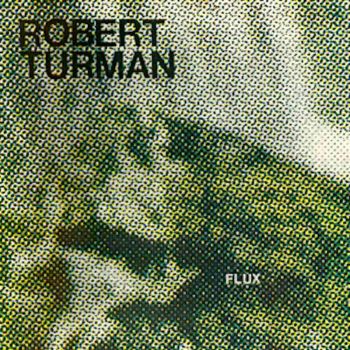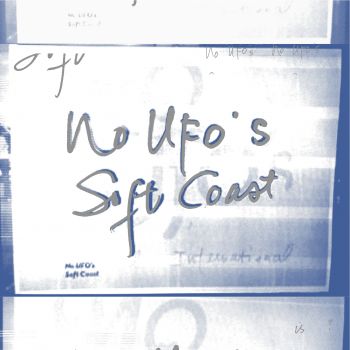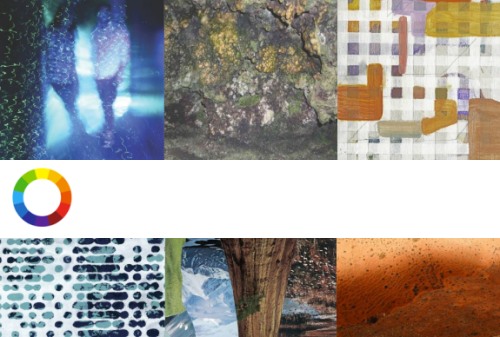Spectrum Spools is a label curated by John Elliott of Emeralds.
Founded last year under the umbrella of Peter Rehberg’s esteemed, Vienna-based Editions Mego label, Spectrum Spools’ has helped bring to vinyl, and to a wider audience, electronic music that might otherwise have languished forever in tiny cassette and CD-Rs editions heard by only 20 or 30 hardened fanboys. From the enervated minimalism of Bee Mask’s Elegy For Beach Friday, to the kosmische derivations of Forma’s self-titled album and No UFOs’ Soft Coast to the droning, lopsided techno interrogations of Container’s LP and Temporal Marauder’s Feel, Elliott has consistently intrigued and delighted with his releases, building up a catalogue that not only reflects his individual tastes, but also documents an explosion of synthesizer-driven creativity in the US underground that it’s fair to describe as a phenomenon.
This year Spectrum Spools is set to go further, and deeper, reissuing 80s recordings by Robert Turman and Franco Falsini, and presenting Animal Husbandry, an incredible album of skewed pop by Human Teenager. FACT’s Tim Purdom got hold of Elliott to hear more.
How did Spectrum Spools begin?
“It began as an idea for a private-press sub-label of Wagon, a label myself and Mark [McGuire, Emeralds guitarist] run together. Wagon is moving slower than it used to, and I wanted to keep things moving with micro-run cassettes and LPs with hand-made art, similar to some of the aesthetics of our first releases. I kept getting all these crazy masters from people and wanted them to get out there, so I proposed a sub-label to Mr. Rehberg, who was kind enough to trust my judgement and bankroll the production costs. I had an idea of how I wanted to present the releases, and what I was looking for in an artist for the label…I wanted the layouts to be sort of an Alga Marghen meets Capitol Records “colorband”-era mish-mash.
“As long as I remember I’ve been in love with vinyl records and always wanted to produce them.”
 How have you found the experience of running the label so far?
How have you found the experience of running the label so far?
“It’s definitely a great experience. As long as I remember I’ve been in love with vinyl records and always wanted to produce them. There’s a lot of anxiety and excitement simultaneously. I really just want people to enjoy my releases and see what I see in them. I worry about if the record will sell copies and get out to new listeners, so that the artist can step up. I really worry about failing to deliver for them, and it can be a scary and depressing feeling. I like to put together the art, schedule releases so it becomes more and more unpredictable what kind of sounds will come next, and writing press releases.”
How exactly does Spectrum Spools operate in relation to Mego?
“Peter [Rehberg, Editions Mego boss] takes care of manufacturing and distributing, I handle what’s being released, collecting layouts, getting labels made and so on.”
 Do you have any help design-wise?
Do you have any help design-wise?
“I work closely with Mike Pollard, who does most of the layouts, and Jen Gomez, who does layout assistance and design work. They both have sharp, modern styles which I really like. Jen designed the label from a few different ideas I had. I wouldn’t be able to move this quickly without them, and I value their work very much.”
This year you seem to be digging deeper into history for releases on the label, what with the Turman and Falsini editions…
“It depends on what I can get to be able to release. Between paying mechanical fees, getting rights to release things, and finding an artist who’s on the same page and trusts the label it can sometimes be difficult. I never want to become one of those ‘re-issue’ labels like so many that are popping up all over the place. I think if a recording fits into the sound of the label, then I’ll go for it. I won’t release an album just because it’s ‘vintage’ or ‘obscure’, but if I think more people should be able to access it I’ll try and give it a shot.”
“I feel like there’s a glut of goofball music on the rise and a lot of these great artists that deserve exposure have been slipping through the cracks.”
 Tell us more about those Turman and Falsini records.
Tell us more about those Turman and Falsini records.
“Those projects seem to have come at the right time and at the right place. I have always been a Sensations Fix fan, so I actually just shot Franco a message on Facebook! It took some emailing, some detective work and a little studio work – especially for him – but we’re both happy with the results and would like to proceed with a few more potential releases in the future. Mr Turman became an Ohio resident a few years ago, and I met him through Aaron Dilloway. Originally Aaron was going to re-issue material from Robert’s archives on his Hanson Records imprint, but the project was held up for a long while. I asked Robert if he’d be interested in working together and got clearance from Aaron as well and now Flux is here! More in the pipeline as well.”
 You’ve been damned prolific so far – 14 or so releases in not much more than year. How? Why?
You’ve been damned prolific so far – 14 or so releases in not much more than year. How? Why?
“I would never put out a release that shouldn’t be heard by a wider audience. There are many great experimental labels out there, like Editions Mego, as well as PAN, Hanson Records, etc, but I feel like there’s a glut of goofball music on the rise and a lot of these great artists that deserve exposure have been slipping through the cracks while these young labels scurry to find their commercially acceptable jammer. In 2013, Spectrum Spools will slow down very much, but there is a very exciting scene of musicians spread out all across America and the rest of the world that I’m trying to take care of as soon as I’m possible.”
“I view the label as a project in and of itself.”
Why do the plan to slow down now?
“The label will hopefully slow down soon, partly just because a lot of releases I’ve had in this large queue are almost out – hopefully by the end of the year I can have a lot of what I wanted out on wax, so the artist can have some relief and a killer record out, and so I can look to the future and maybe re-evaluate my structure.
“I view the label as a project in and of itself, it could end at any moment when I feel like the releases as a whole make sense. While this is highly unlikely any time in the very near future, I do have an idea that I’d like to end the label on catalogue number that would make sense – something like *00 or *50.”
Do you find the practical side of running the label has taken up a lot of your time? Has it impacted negatively on your own music-making?
“The label has been quite busy, and it’s definitely taken up much more time than I originally had thought it would. There’s no end to the work! You can never promote enough, plan enough, think enough of ideas to improve or change. So, yes, absolutely in the last six months or so it’s been kind of dawning on me what it means to do some of these things. That being said, Peter [Rehberg] is absolutely remarkable in his rapid release schedule, and his ability to not only get everything done on time, but looking and sounding flawless. I’ve had a great teacher to learn from. He’s got a few surprises up his sleeve that nobody is ready for, and I’m looking forward to that! “
“As far as making music goes, it really hasn’t affected me that much, I just need to make sure that I use my time more wisely. There’s no way to schedule inspiration or ideas I’d want to pursue, so it’s pretty much the same in regards to getting things written and recorded. Recently I’ve been more interested in playing music freely, without recording or composing. This has helped take the pressure off of trying to always be prolific – even though there are two Outer Space 12″s in the works for the near future.”
“It’s important to take risks and have variation.”
 How would you describe the common thread running through each of the disparate releases on Spectrum Spools? If indeed you think there is one…
How would you describe the common thread running through each of the disparate releases on Spectrum Spools? If indeed you think there is one…
“I generally just try to put out music that I’m naturally attracted to, or more importantly feels natural to me. I am a fan and a listener of the artists on my label, and I go through nerdy extents to make sure I get all their limited cassettes and all that kind of stuff. A lot of the artists so far are people I’ve admired and had a lot of respect for, so it’s my pleasure to be in a position to get these releases out there to – hopefully – a wider audience. It’s also important to take risks and have variation. Take Hive Mind and stack it next to Container: there are parallels that can be drawn, but on a surface level they seem very different from each other, musically and aesthetically. I have an album by Plvs Vltra [Toko from Enon, touring keyboardist for St. Vincent] coming out in May that’s pretty much a straight-up pop album. Looking forward to that!”
 How would you say your listening tastes have changed over the years? What are you still looking for in music?
How would you say your listening tastes have changed over the years? What are you still looking for in music?
“Myself and like-minded friends like Steve Hauschildt, Mark McGuire, Henry Glover and Erik Gomola all grew up in Cleveland, an isolated north-east Ohio town with a lot of real surface-level, unadventurous musical tastes. Erik had bought a Kevin Drumm LP, Land of Lurches, by mistake at a Wolf Eyes gig in, like, 2003. I was just out of high school and getting into Tangerine Dream and other weird music, and all of us were on the hunt for more interesting stuff. Anyway, we were always pretty loaded on various mind-altering substances and totally stoned listening to new stuff. We threw on Land of Lurches and everybody was totally blown away – there’s this mental series of multi-oscillator drones that the first track builds up to and it’s my favorite moment of any album.
“A few of my enduring obsessions are my hunt for Kangaroo Kourt albums (I need two more), Tangerine Dream albums, Pink Floyd bootlegs, limited 7″ releases by The Locust, and private synth sides.”
“We were on the hunt for more interesting stuff… and always pretty loaded on various mind-altering substances.”
 Why do you think there’s been such an explosion of artists in the US making synthesizer-oriented music in the last 10 years?
Why do you think there’s been such an explosion of artists in the US making synthesizer-oriented music in the last 10 years?
“There seems to definitely be an increased interest in analogue and even digital synthesizers. It’s being incorporated into musics across the board, and it’s very cool. Nobody can predict the future and it seems like there could be another regression into experimental based rock musics, or things could go fully electronic. The technology advancements in the electronic instrument world are exponentially growing. There’s a lot of functionality, and crazy potential in new equipment and I think a lot of people are stepping up to the gear and having a good time experimenting with it. Some of the new synthesizer equipment at NAMM this year was pretty next level.
“I bought my first synthesizer, a Korg MS-10, off eBay for $525, shipped from Japan in new condition. I bought a synthesizer because I was fascinated by the sounds Greh Holger [Hive Mind] was making and wanted to pursue the instrument. Back then, in the midwest underground, not too many heads were jamming synths aside from Greh and Aaron [Dilloway], so maybe I was just coming from a different place, or maybe there’s been a collective recognition of the potential of the synthesizer. Who knows?”
Tim Purdom































